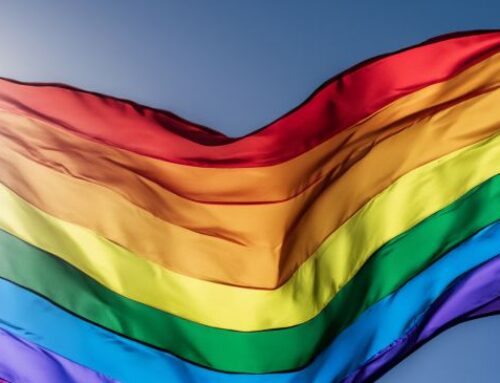Group estimates there are 80 million children in servitude across Asia
Iqbal Masih, a 12 year old Pakistani Christian who had won international acclaim for his crusade against child slavery, was shot and killed when returning to his home near Lahore, Easter Sunday, April 16. Now there are reports that his whole family has been and some fellow andti-slave activists arrested.
Iqbal, who was for years chained to a carpet loom, had been freed in 1992 by the Bonded Liberation Front of Pakistan, a pressure group combating bonded labour in brick kilns, carpet making, and agriculture. As well as fighting in the courts to free bonded workers, BLLF runs a number of schools.
Iqbal was president of the children’s wing of the BLLFP. He had received the American Reebok Human Rights Award of $15,000 in December 1994 at the age of 11.
It is estimated that Pakistan has lost $10 million dollars in world trade since Iqbal’s death.
The chairman of International Christian Awaz, Canada, Shadab, Khokhar, reports that no one has been charged in Iqbal’s murder and that, worse still, his parents, his uncles, and his older brother have all been detained, beaten, and interrogated in a police station.
BLLF was reported in Maclean’s June 19 saying that not only had four BLLF activists been arrested but also that 13 of Iqbal’s relatives have been detained. “Authorities have accused at least one of those arrested with conspiring with Indian authorities to damage the reputation of Pakistan’s carpet industry.”
As of August 17, two BLLF workers, Muhammad Saleem (arrest June 8) and Muhammad Ashraf Sayal (arrested a few days after Saleem) have still not been released. Saleem suffers from both diabetes and heart disease.
Police originally quoted a young witness as saying that Iqbal had been shot by a man whom Iqbal surprised having sex with a donkey, but the Southern Asian Coalition on Child Servitude disagreed. “The carpet mafia has brutally killed Iqbal Masih,” SACS spokesman Kailash Satyarthi said.
An inquiry into Masih’s murder was recently completed in Lahore High Court. There are many dubious circumstances surrounding the inquiry, and not a single non-governmental official was accepted to monitor the proceedings. It is holiday time in Pakistan and the judge in charge is abroad so no results are known.
Satyarthi’s organization estimates that there are 80 million children in servitude across Asia today. “There are more than a million child slaves in the carpet weaving industry in Pakistan-more than anywhere else in the world.”
In Pakistan sons especially are expected to support the family at a very young age. At just 8 or 9 they are sent into the bricklaying or carpet industry, working a full day for only one or two rupees, about 25 cents. The family wants them to learn a trade but the apprenticeship sours when the owner advances a large loan to the family which they cannot pay back, thus ensuring the enslavement of their son.
Daughters are less likely to be sent out to work in Pakistan for fear they will be raped by the rich landlord or involved in prostitution. But neither the boys nor the girls of the poor families get any education.
Poor Christian families are just as vulnerable if not more. Christians are called “sweepers,” untouchables. Being Christian doubles the trouble in Pakistan, whereas in India, a more secular country, Christians may be poor but they are not often persecuted for their religion.
Masih (there are various spellings) is a French derivative of Messiah and indicates that the family is Christian, at least nominally.
“Any individual, Muslim or Christian, who unveils the crimes of the carpet mafia and exposes child slavery would have been persecuted,” said Khokhar, “but after Iqbal’s murder the persecution took a more religious turn.”
“Too often a non-religious grievance gets settled in religious grievance gets settled in religious terms in Pakistan. As a Christian minority, and usually poor to boot, you need to leave a city after a dispute, else you are in danger of being framed at any time.”
The entire Christian community in Pakistan initiated a letter-writing campaign after Iqbal’s death. There have been no open street protests for fear that anyone initiating them will be the next target. Catholic Bishops John Joseph of Fasialvad, the Punjab, who has spoken out earlier about other human rights violations, is again voicing concerns.
Two per cent of Pakistan is Christian, mostly in the Punjab, the richest and strongest province, but the Christians themselves are poor. The Christian community while small, works together, Catholics with Protestants.
Bishop Joseph said that when the Vatican asked him recently how ecumenism was going in Pakistan, he answered, “If I tell you, you’ll faint.”
It is easier for nationals to speak out since missionaries are in danger of being expelled. All missionaries are finding it very hard to obtain new visas.
“Letters can be a useful weapon when used properly. Canadians should write to their local MPs who would then forward them to the Pakistani embassy,” advises Khokhar. “This would be far more embarrassing and force the High Commission to do something, than if a Canadian citizen wrote directly to the embassy.”
Khokhar has met with Prime Minister Benazir Bhutto and says, “She is open but she has pressure from so many extremist Muslims that she is helpless. If there is a cover-up of Iqbal’s death it will be better for exports.”
A bill has been introduced into the U.S. Senate by Sen. Tom Harken to ban American imports made by children under 15 and several large American retailers are enacting human rights policies, but some of these policies backfire.
“Many importers who have boycotted Pakistan, now get their carpets from India or Nepal where there is also child labour,” reports the Economist, June 3.
“Caroline Lequesne of Oxfam, reckons that between 1993 and 1994 around 30,000 and 50,000 children working in textile firms in Bangladesh were thrown out of factories because suppliers feared losing their business if they kept the children on. But the majority of these children have, because of penury, been forced to turn to prostitution (and drugs) or other industries like welding, where conditions pose far greater risks to them.
“In countries such as India, in which many people have no birth certificates, it is difficult to assess whether a child is below 15 years of age.” The Economist concludes, “Likewise there is an enormous difference between exploitive and bonded labour where children are used as slaves and informal arrangements where children may be working at home alongside their parents learning a trade.”




